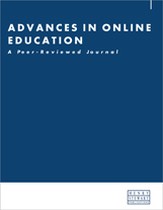Using ChatGPT to pass online courses: Lessons learned in higher ed
Abstract
The purpose of this study was to determine if a student could complete a post-secondary online course with a passing grade by solely using the artificial intelligence (AI) tool ChatGPT to complete all assignments. ChatGPT is a natural language processing tool driven by AI technology that allows individuals to engage in human-like conversations with a chatbot to answer questions and assist in writing tasks. Studies exist that indicate ChatGPT could be used to successfully complete various assignments in a controlled setting, but none show ChatGPT being used in a live environment for the entire body of coursework. To complete this study, five researchers posed as online undergraduate and graduate students using fictitious student accounts in online, asynchronous courses. Of the five, three were able to pass their course without being identified. Findings suggest that because of the ease of using ChatGPT to complete assignments, universities should focus on adapting assignments, assessments and policies to teach and encourage its ethical use.
The full article is available to subscribers to this journal (subscription is free).
Author's Biography
Jason Bock , MEd, is a doctoral candidate in instructional design and technology at the University of West Florida with research focusing on online student sense of community and engagement. He serves as Director of Distance Learning for the American Musical and Dramatic Academy College of the Performing Arts.
R. Diane Schmallegger Diane Schmallegger, EdD, is currently the Director of Learning Design at Tiffin University. Since receiving her EdD in instructional technology and distance education from Nova Southeastern University, she has worked in various roles related to online learning, including faculty training, instructional design and adjunct instruction. Her experiences as both student and designer have contributed to her love for online learning.
Mike Mckay currently serves as the Director of Generative AI in Education at Tiffin University, where he applies his extensive background in educational technology and instructional design. Mike is dedicated to researching and developing highly engaging and authentic online courses that integrate generative artificial intelligence (GenAI), aiming to transform the curriculum and elevate faculty instructional design and student learning experiences.
Michelle Meadows PhD earned her Doctorate and Master of Education degrees in curriculum and instruction. Her Bachelor of Science degree was in middle childhood education specialising in science and mathematics with an emphasis on reading. Her research interests include incorporating technology as an aid in student learning, pre-teacher training and differentiating lessons to meet the needs of all learners.
Shana Holzer is the Assistant Director of Alumni Relations at Seton Hill University. She has worked in higher education for 11 years in various roles including alumni relations, advancement, online learning, athletics and public safety.
Citation
Bock, Jason, Schmallegger, R. Diane, Mckay, Mike, Meadows, Michelle and Holzer, Shana (2024, September 1). Using ChatGPT to pass online courses: Lessons learned in higher ed. In the Advances in Online Education: A Peer-Reviewed Journal, Volume 3, Issue 1. https://doi.org/10.69554/YSYD6236.Publications LLP
